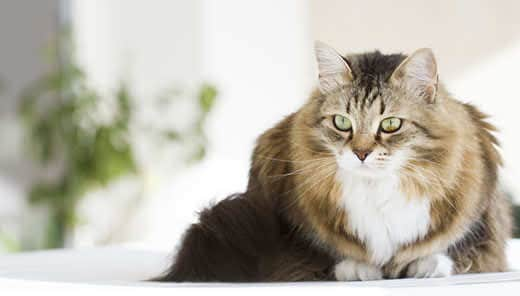
-
Find the right food for your petTake this quiz to see which food may be the best for your furry friend.Find the right food for your petTake this quiz to see which food may be the best for your furry friend.Featured products
 Adult Chicken & Barley Recipe Dog Food
Adult Chicken & Barley Recipe Dog FoodSupports lean muscle and beautiful coat for adult dogs
Shop Now Adult Large Breed Chicken & Barley Recipe Dog Food
Adult Large Breed Chicken & Barley Recipe Dog FoodSupports healthy joints, lean muscle, and beautiful coat for large breed dogs
Shop Now Hill's Science Diet Adult Chicken & Beef Entrée Dog Food
Hill's Science Diet Adult Chicken & Beef Entrée Dog FoodChicken & Beef Entrée in a delicious loaf with complete & balanced nutrition to help keep adult dogs active and healthy
Shop NowFeatured products Adult Turkey & Liver Entrée Cat Food
Adult Turkey & Liver Entrée Cat FoodPrecisely balanced nutrition with the delicious taste of minced turkey & liver to help fuel the energy needs of cats during the prime of their life
Shop Now Adult 7+ Indoor Chicken Recipe Cat Food
Adult 7+ Indoor Chicken Recipe Cat FoodSupports energy level and beautiful fur in mature indoor cats
Shop Now Senior Vitality Adult 7+ Tuna & Vegetables Stew
Senior Vitality Adult 7+ Tuna & Vegetables StewImproves Everyday Ability to Get Up & Go
Shop Now -
Dog
- Dog Tips & Articles
-
Health Category
- Weight
- Food & Environmental Sensitivities
- Urinary
- Digestive
- Joint
- Kidney
-
Life Stage
- Puppy Nutrition
- Adult Nutrition
- Senior Nutrition
Cat- Cat Tips & Articles
-
Health Category
- Weight
- Skin & Food Sensitivities
- Urinary
- Digestive
- Kidney
-
Life Stage
- Kitten Nutrition
- Adult Nutrition
Featured articles How to Properly Mix Wet & Dry Pet Foods
How to Properly Mix Wet & Dry Pet FoodsAn Orange cat eating from a bowl filled with mixed food
Read More The Science Behind Our Love for Pets
The Science Behind Our Love for PetsLearn the scientific reasons why we have such strong connections with our pets, and what science says about the love between humans and our furry friends.
Read More What Is Littermate Syndrome? Pet Adoption Guide
What Is Littermate Syndrome? Pet Adoption GuideLearn more about littermate syndrome in dogs and cats and how to successfully navigate adoption and early socialization processes.
Read More -

If you'd love to adopt a feline friend but you're allergic to cats, hypoallergenic cat breeds may be an option for you. Although truly hypoallergenic cats don't exist, there are certain breeds that may work for your allergy and your lifestyle. Additionally, there are a few best practices you can adopt so that you're able to have a cat and still live comfortably.
Why Aren't Cats Hypoallergenic?
When something is considered hypoallergenic, that means it's less likely to trigger an allergic reaction in those who come in contact with it. Though it's more commonly associated with products, such as cosmetics and textiles, the term has also been used to describe certain animal breeds as well.

However, when talking about kitties, grouping breeds together as hypoallergenic cats can be misleading. That's because all cats produce allergens, no matter how little or how much fur they have, explains International Cat Care. Unlike with body lotions or shampoos, you cannot remove all the allergens from a cat. Therefore, technically, there are no hypoallergenic cat breeds.
There are 10 cat allergens in all. According to International Cat Care, the most common allergy-producing proteins are: Fel d 4, which can be found in a cat's saliva, urine and feces; and Fel d 1, which can be found in the oil-producing glands under a cat's skin.
This is why even hairless cats can trigger allergic reactions. These proteins cause common allergy symptoms like sneezing, coughing, watery eyes, a stuffy nose and hives.
Cat dander — i.e., dead skin cells — also produces allergens. Oftentimes, people think they're allergic to cat fur, but it's actually the dander and/or the bodily fluids on the fur that trigger the allergy. "Pet hair is not an allergen," explains the Asthma and Allergy Foundation of America, but it is a carrier for dander and other allergens like pollen and dust. A cat's dead skin flakes off and gets trapped in their fur, which is why anyone who pets your kitty may be inundated with allergens that cause an allergic reaction.
But there's good news: Some cat breeds produce fewer allergens and shed less than others. If you're looking into more hypoallergenic cat breeds, these kitties may fit the bill — they bring a lot of joy into your home without adding a ton of allergens into your air.
Which Breeds Shed the Least?
Though they're not 100 percent hypoallergenic cats, low-shedding breeds may be a good option if you have cat allergies. Allergens are still present in their bodily fluids and dander, all of which can be transferred to their fur, but they'll bring fewer allergens into your home simply because they have less fur. However, because a cat's bodily fluids contain many allergens, you'll still want to be conscientious about your interactions with any of these more allergy-friendly kitties.
Russian Blue
This regal breed is a very devoted companion with dog-like behaviors, such as waiting for you at the front door when you're due home from work. They're also very social and vocal cats who like to chatter, so don't be too surprised if they try to strike up a conversation with you. Though Russian blues have dense fur, they don't shed much and produce less Fel d 1 — the most prominent cat allergen — than all other breeds.
 Siberian
Siberian
This isn't a cat who will fade into the background; they want your attention! They love to play with toys and have impressive acrobatic skills. And despite their dense fur, Siberians are one of the most allergy-friendly cat breeds around because they produce a low level of Fel d 1. The Siberian may be a good pet if you're mildly allergic to cats, but The Cat Fanciers' Association (CFA) recommends spending time with one before bringing it home to see if you have an allergic reaction.
Snowshoe
Named for their white paws, the Snowshoe is a muscular, good-natured cat with a big personality. They love people and require on-demand attention. They're a good choice for lively households and many love going for swims. This breed has a single layer of fur, notes The International Cat Association (CFA), and doesn't require daily grooming. Both their lack of an undercoat and low-shedding tendency help reduce the spread of fur and the allergens — dander and saliva, most prominently — that go with it.


Tasty Tips
Sphynx
No list of more hypoallergenic cat breeds is complete without the mysterious Sphynx — a predominantly hairless cat. They're mischievous, playful, and tolerant of others — they even get along well with dogs. The Sphynx requires some grooming, like regular bathing and ear and nail cleaning, to reduce the amount of dander they transfer into their environments, explains the CFA. Because the protein in their saliva is not very prominent, the CFA adds, this breed may work well for those with allergies.
What to Consider Before Adopting an Allergy-Friendly Cat
Even if you've homed in on the perfect furry friend for your allergies, you'll want to be sure that this cat is the right pet for your lifestyle. Even low-maintenance cats require a large commitment, so you'll want to be sure that you have room in your heart, home and schedule before adopting one of the cat breeds mentioned above. Spending time with a certain type of cat to see how your allergies act up around them is always recommended. If you are considering adopting, make sure to talk to the adoption counselors to see if there is a particular cat that might be a better fit for you.
Living the Cat Lifestyle
Having a cat is an investment. In return, you get a beautiful, loving friendship. Cats tend to be very independent, but they still require a lot of time and attention — and they'll likely demand it. Cats sleep a lot, it's true, but when they're awake, they usually want to play, snuggle or hang out with their pet parents. They'll also want you to be at their beck and call at all times.
Sometimes, adopted cats are returned to a shelter because the pet parent wasn't prepared for the kitty's personality quirks or behavior, such as scratching, a reluctance to warm up to them or their family right away, and yes, even because someone in the household found out they were allergic to the cat. Some of this behavior can be easily remedied with training, time and by introducing new toys, such as a scratching post. However, as with any big change, patience is a necessary virtue when adopting a new pet.
Allergies & Adapting To a Cat
If you're ready to adopt a kitty but worried about your cat allergy, the Ohio State University College of Veterinary Medicine suggests taking these actions to help alleviate allergy-related symptoms:
- Choose hard-surface flooring over carpeting.
- Vacuum often, including over any furniture made of soft materials.
- Install a HEPA filter.
- Give your cat baths.
- Wash your hands immediately after holding or petting your cat.
- Avoid letting your cat get on your bed or in your bedroom.
Handling and grooming a cat can also stir up allergens, so it's a good idea to wear a mask when doing so or to recruit a helper so you don't have as much fur flying in your face.
If you have a cat allergy and your heart is set on adopting a feline fur baby, be sure to explore all of your options. With a little time and persistence, you may find the perfect cat to bring home who fits your lifestyle and won't send your allergies into a tizzy.


Christine O'Brien is a writer, mom, and long-time cat parent whose two Russian Blues rule the house. Her work also appears in Care.com, What to Expect, and Fit Pregnancy, where she writes about pets, pregnancy, and family life. Find and follow her on Instagram and Twitter @brovelliobrien.
Related products

Supports the health of the whole urinary system with optimal levels of magnesium

Hill's Science Diet Adult Sensitive Stomach & Skin Chicken & Vegetable Entrée canned cat food provides nutrition for optimal digestive & skin health.

Supports kitten growth, digestive health, nourishes skin and promotes a lustrous fur

Over 70% of cats lost weight within 10 weeks when fed this nutrition
Related articles

When you adopt a cat, you don't just gain a best friend; you also save her life. Here's why getting a cat from a local animal shelter makes so much sense.

Discover how to train your cat, starting with very basic first steps that both reward good behavior and discourage the bad.

Discover which cat toys games your feline friend might like, and how they are great sources of exercise. Explore our library of articles to learn more.

Learn how to litter train a kitten with this guide to potty training, including when to start litter training kittens and troubleshooting tips.

Put your cat on a diet without them knowing
Our low calorie formula helps you control your cat's weight. It's packed with high-quality protein for building lean muscles, and made with purposeful ingredients for a flavorful, nutritious meal. Clinically proven antioxidants, Vitamin C+E, help promote a healthy immune system.
Put your cat on a diet without them knowing
Our low calorie formula helps you control your cat's weight. It's packed with high-quality protein for building lean muscles, and made with purposeful ingredients for a flavorful, nutritious meal. Clinically proven antioxidants, Vitamin C+E, help promote a healthy immune system.

